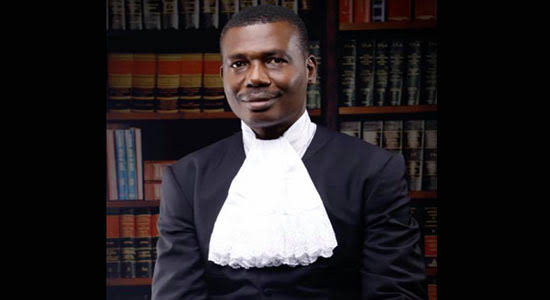By Veronica Ilupeju, JP
The case involving Maurice Etim, a minority shareholder and director in several Edmark Group companies in Nigeria, against Sam Low Ban Chai, the founder of Edmark Industries, has raised significant concerns regarding judicial impartiality and ethical misconduct. Etim is pursuing a legal case against the respondents, alleging signature forgery and other serious claims. The case has been presided over by Justice Osiagor after it was transferred from Justice Aneke, and his handling of the case has sparked allegations of bias.
One key issue is the apparent conflict of interest between Justice Osiagor and Ebun-Olu Adegboruwa SAN, who represents the respondents. Legal observers have raised concerns about the potential lack of fairness in the proceedings due to the judge’s relationship with Adegboruwa SAN and his decisions in the case. For instance, Justice Osiagor appointed Samuel Ibrahim from Andersen LP as the court auditor, but it later emerged that Ibrahim had a prior professional relationship with Osiagor, raising ethical questions about impartiality. Moreover, Osiagor’s refusal to recuse himself from the case, despite allegations of bias, has fueled suspicions of favoritism towards the respondents.
In another troubling instance, Justice Osiagor granted a restraining order in favor of the respondents without a formal motion, and limited the petitioner’s access to key documents submitted to the court-appointed auditor, thereby undermining transparency and fairness in the proceedings. This has led to accusations that Osiagor is intentionally favoring the respondents and hindering the petitioner’s ability to challenge the audit findings.
Adegboruwa SAN’s actions have also raised eyebrows. After an unfavorable ruling by Justice Aneke, he petitioned the National Judicial Council (NJC), resulting in the judge’s recusal. This move, coming immediately after the unfavorable ruling, is seen as an attempt to influence the judicial assignment process and delay proceedings. Additionally, Adegboruwa SAN has obstructed police investigations by filing a suit to prevent police involvement in the case, presenting a private forensic report as evidence to dismiss allegations of forgery, and even involving rogue elements of the Nigerian Police to enforce civil court orders, which is a violation of due process.
Furthermore, Adegboruwa SAN publicized Justice Osiagor’s emotional remarks in court, drawing significant social media attention, which many perceive as an attempt to manipulate public opinion and influence the outcome of the case.
Together, the actions of both Justice Osiagor and Adegboruwa SAN suggest a pattern of judicial and legal misconduct. The failure to uphold impartiality, deviation from standard procedures, and attempts to manipulate legal processes raise serious concerns that may warrant investigation by the National Judicial Council and other relevant disciplinary bodies.
…Veronica is a Justice of Peace and writes from Ejidgbo in Lagos





